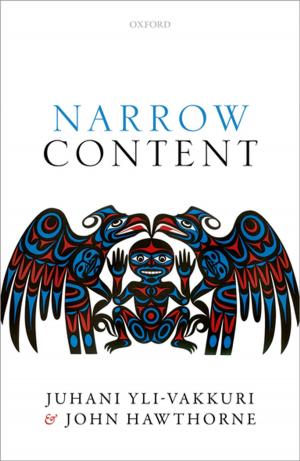Women of Substance in Homeric Epic
Objects, Gender, Agency
Fiction & Literature, Literary Theory & Criticism, Ancient & Classical, Nonfiction, Social & Cultural Studies, Social Science| Author: | Lilah Grace Canevaro | ISBN: | 9780192560803 |
| Publisher: | OUP Oxford | Publication: | September 13, 2018 |
| Imprint: | OUP Oxford | Language: | English |
| Author: | Lilah Grace Canevaro |
| ISBN: | 9780192560803 |
| Publisher: | OUP Oxford |
| Publication: | September 13, 2018 |
| Imprint: | OUP Oxford |
| Language: | English |
Women in Greek epic are treated as objects, as commodities to be exchanged in marriage or as the spoils of warfare. However, women in Homeric epic also use objects to negotiate their own agency, subverting the male viewpoint by utilizing on their own terms the very form they themselves are thought by men to embody. Such female objects can transcend their physical limitations and be both symbolically significant and powerfully characterizing. They can be tools of recognition and identification. They can pause narrative and be used agonistically. They can send messages and be vessels for memory. Women of Substance in Homeric Epic offers a new and insightful approach to the Iliad and Odyssey, bringing together Gender Theory and the burgeoning field of New Materialisms, new to classical studies, and thereby combining an approach predicated on the idea of the woman as object with one which questions the very distinction between subject and object. This productive tension leads us to decentre the male subject and to put centre stage not only the woman as object but also the agency of women and objects. The volume comes at a turning point in the gendering of Homeric studies, with the publication of the first English translations by women of the Iliad in 2015 and the Odyssey in 2017, by Caroline Alexander and Emily Wilson respectively. It makes a significant contribution to scholarship by demonstrating that women in Homeric epic are not only objectified, but are also well-versed users of objects; this is something that Homer portrays clearly, that Odysseus understands, but that has often escaped many other men, from Odysseus' alter-ego Aethon in Odyssey 19 to modern experts on Homeric epic.
Women in Greek epic are treated as objects, as commodities to be exchanged in marriage or as the spoils of warfare. However, women in Homeric epic also use objects to negotiate their own agency, subverting the male viewpoint by utilizing on their own terms the very form they themselves are thought by men to embody. Such female objects can transcend their physical limitations and be both symbolically significant and powerfully characterizing. They can be tools of recognition and identification. They can pause narrative and be used agonistically. They can send messages and be vessels for memory. Women of Substance in Homeric Epic offers a new and insightful approach to the Iliad and Odyssey, bringing together Gender Theory and the burgeoning field of New Materialisms, new to classical studies, and thereby combining an approach predicated on the idea of the woman as object with one which questions the very distinction between subject and object. This productive tension leads us to decentre the male subject and to put centre stage not only the woman as object but also the agency of women and objects. The volume comes at a turning point in the gendering of Homeric studies, with the publication of the first English translations by women of the Iliad in 2015 and the Odyssey in 2017, by Caroline Alexander and Emily Wilson respectively. It makes a significant contribution to scholarship by demonstrating that women in Homeric epic are not only objectified, but are also well-versed users of objects; this is something that Homer portrays clearly, that Odysseus understands, but that has often escaped many other men, from Odysseus' alter-ego Aethon in Odyssey 19 to modern experts on Homeric epic.















